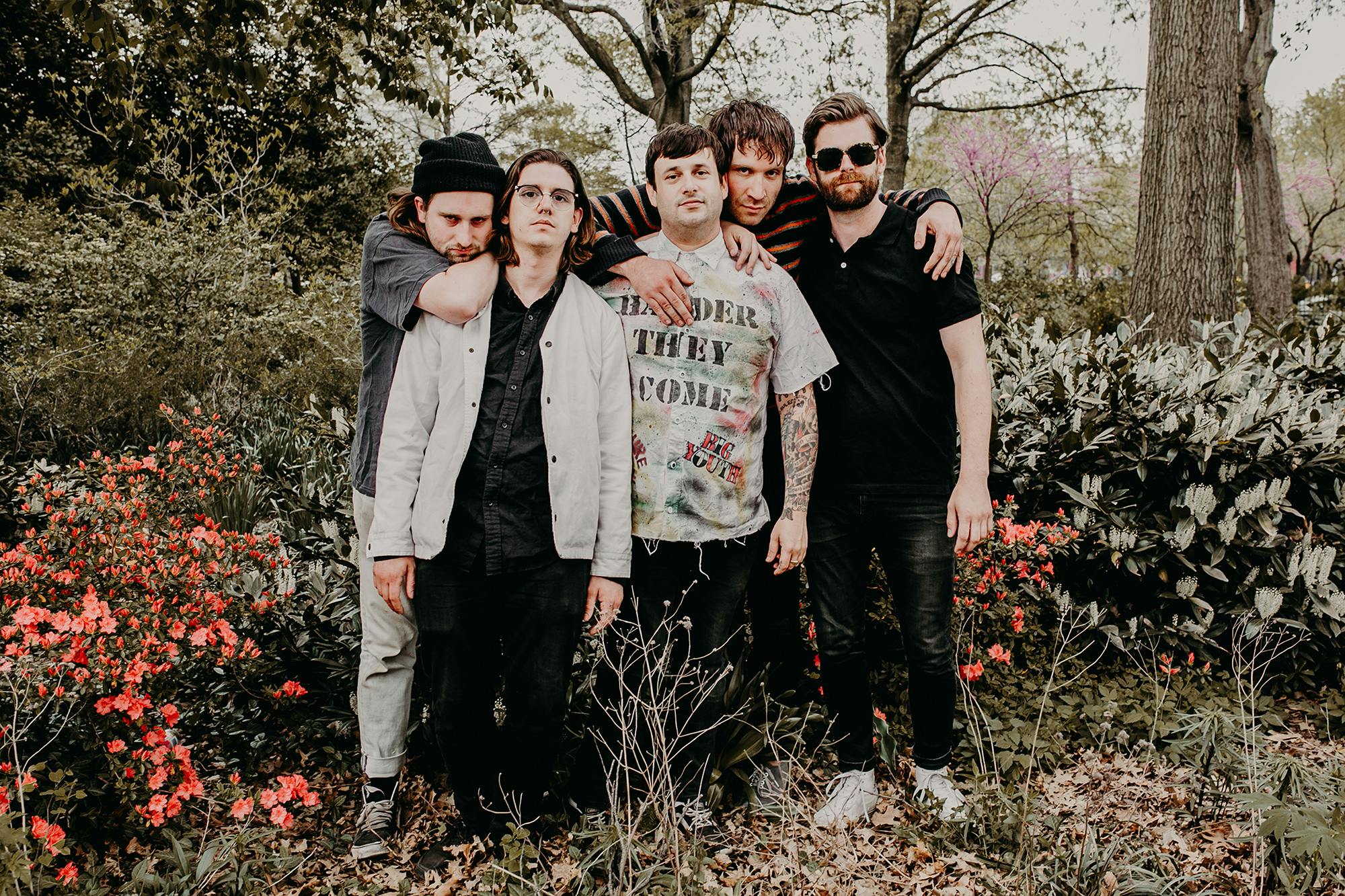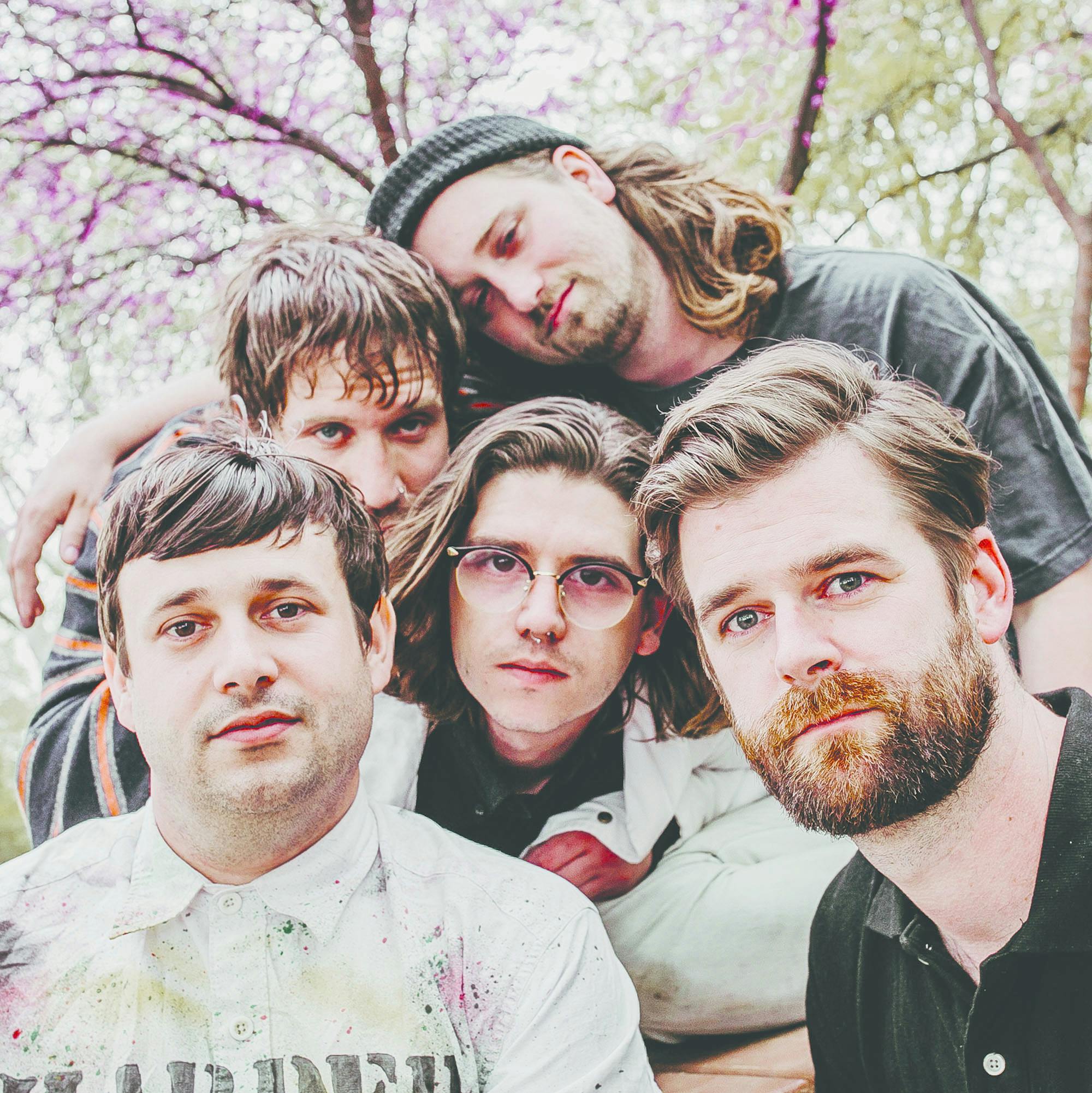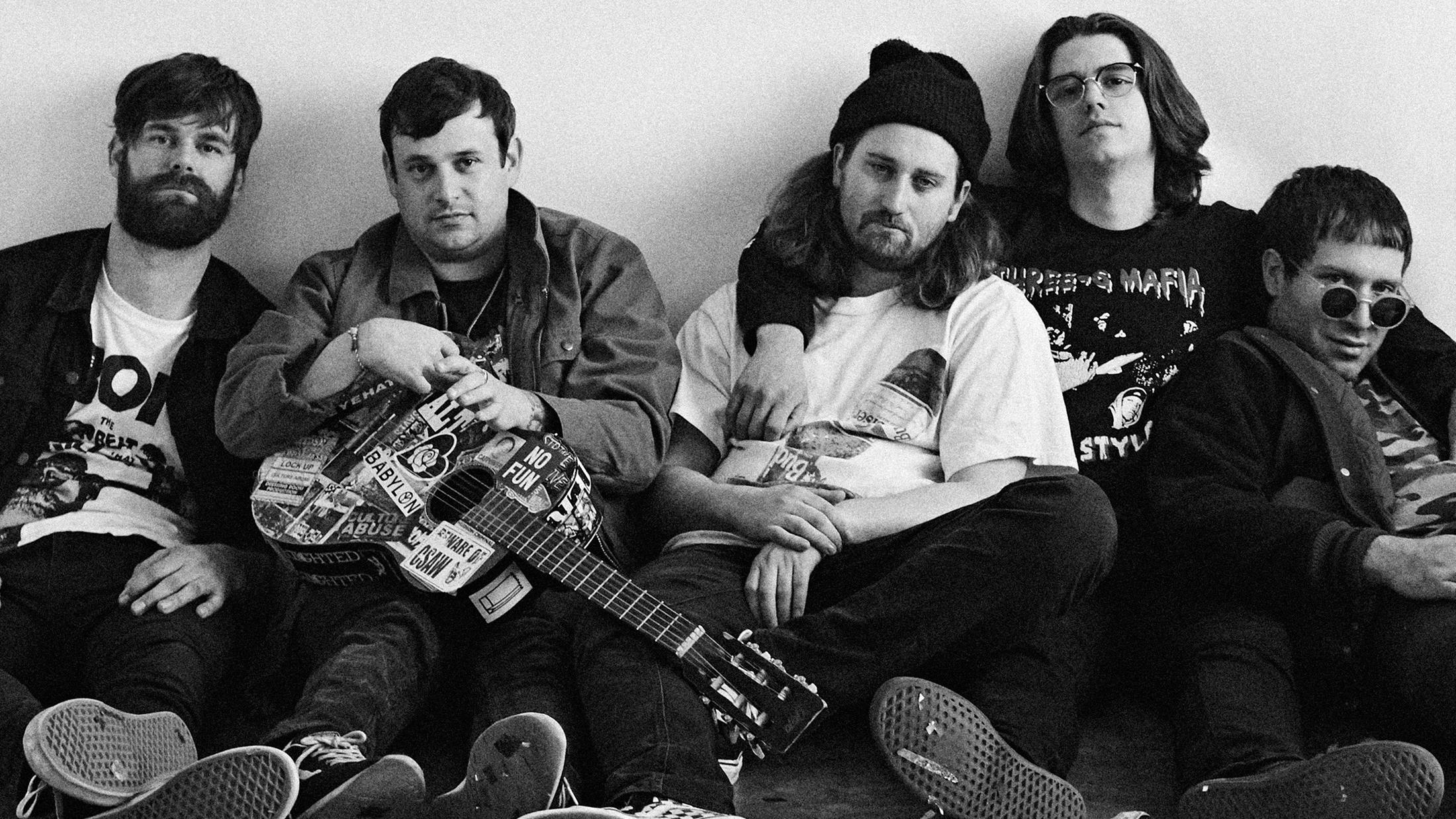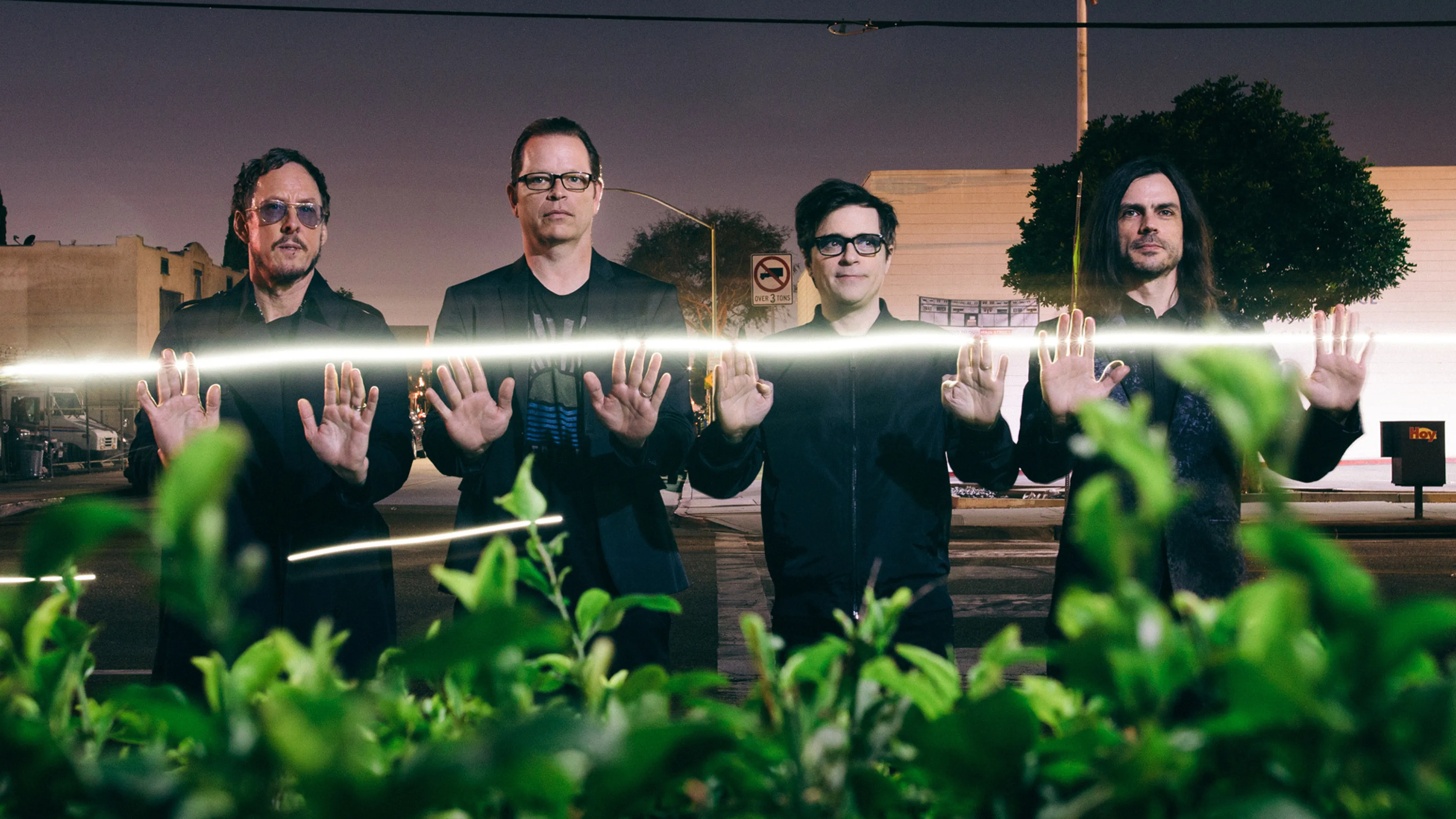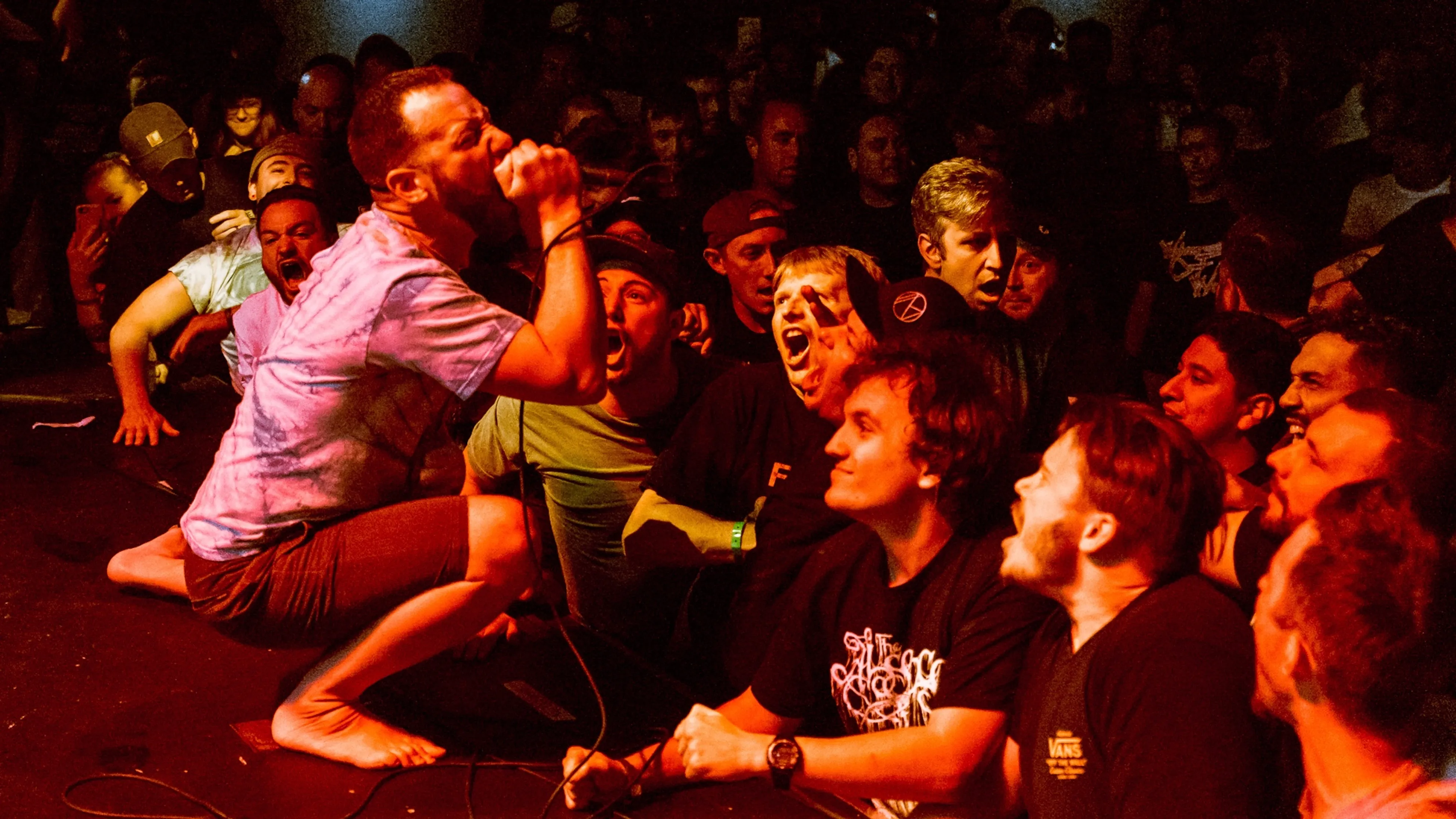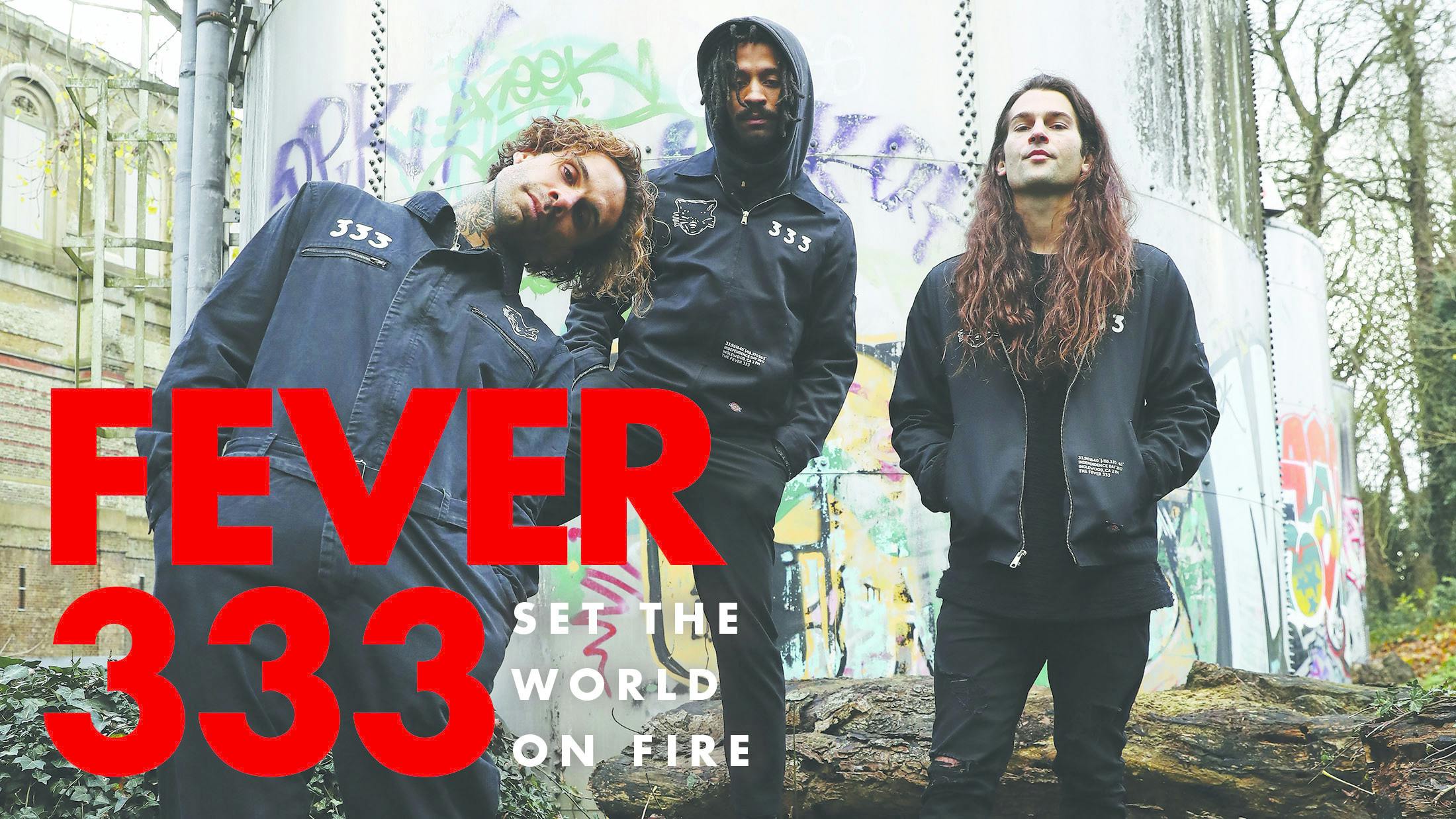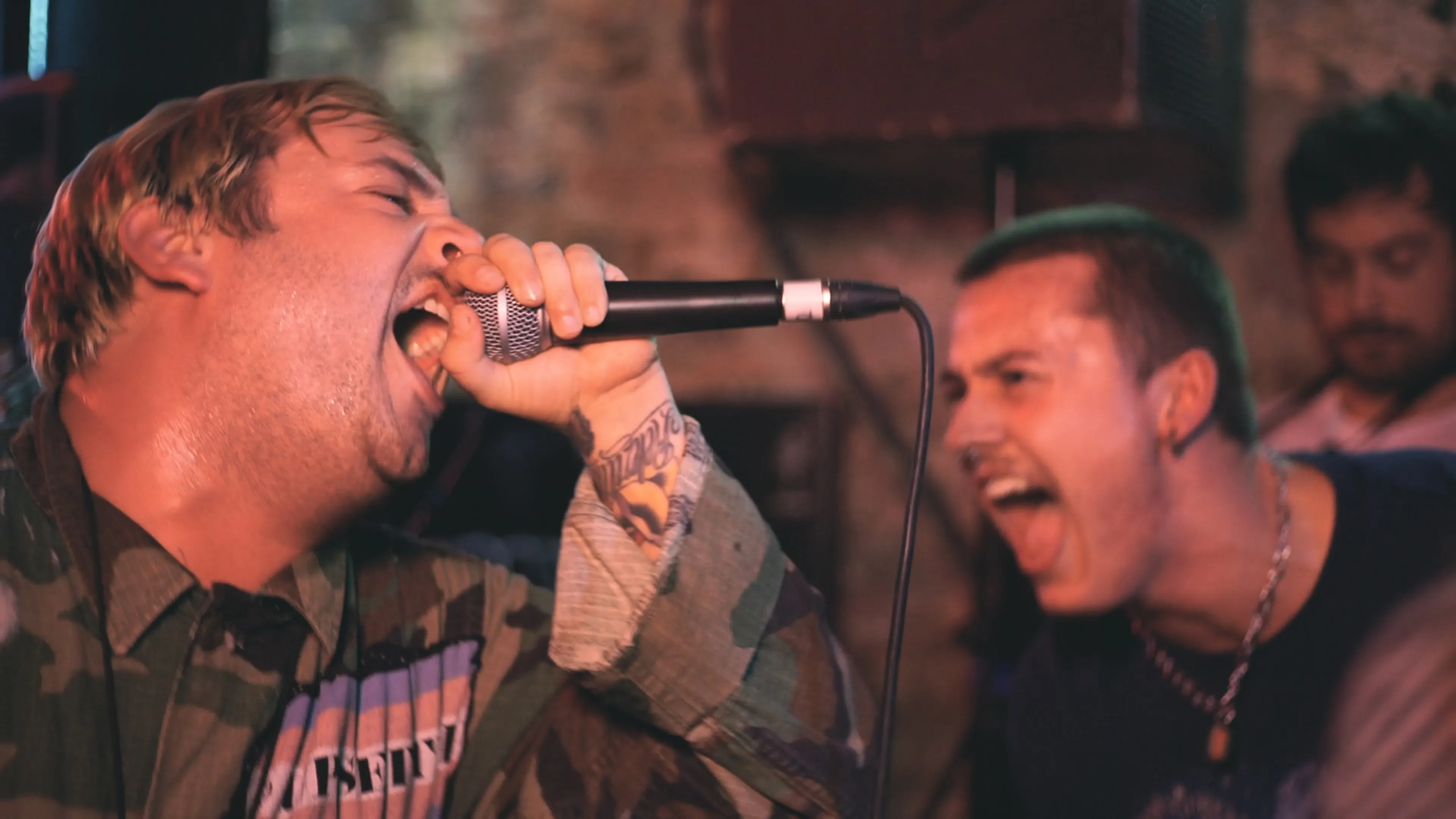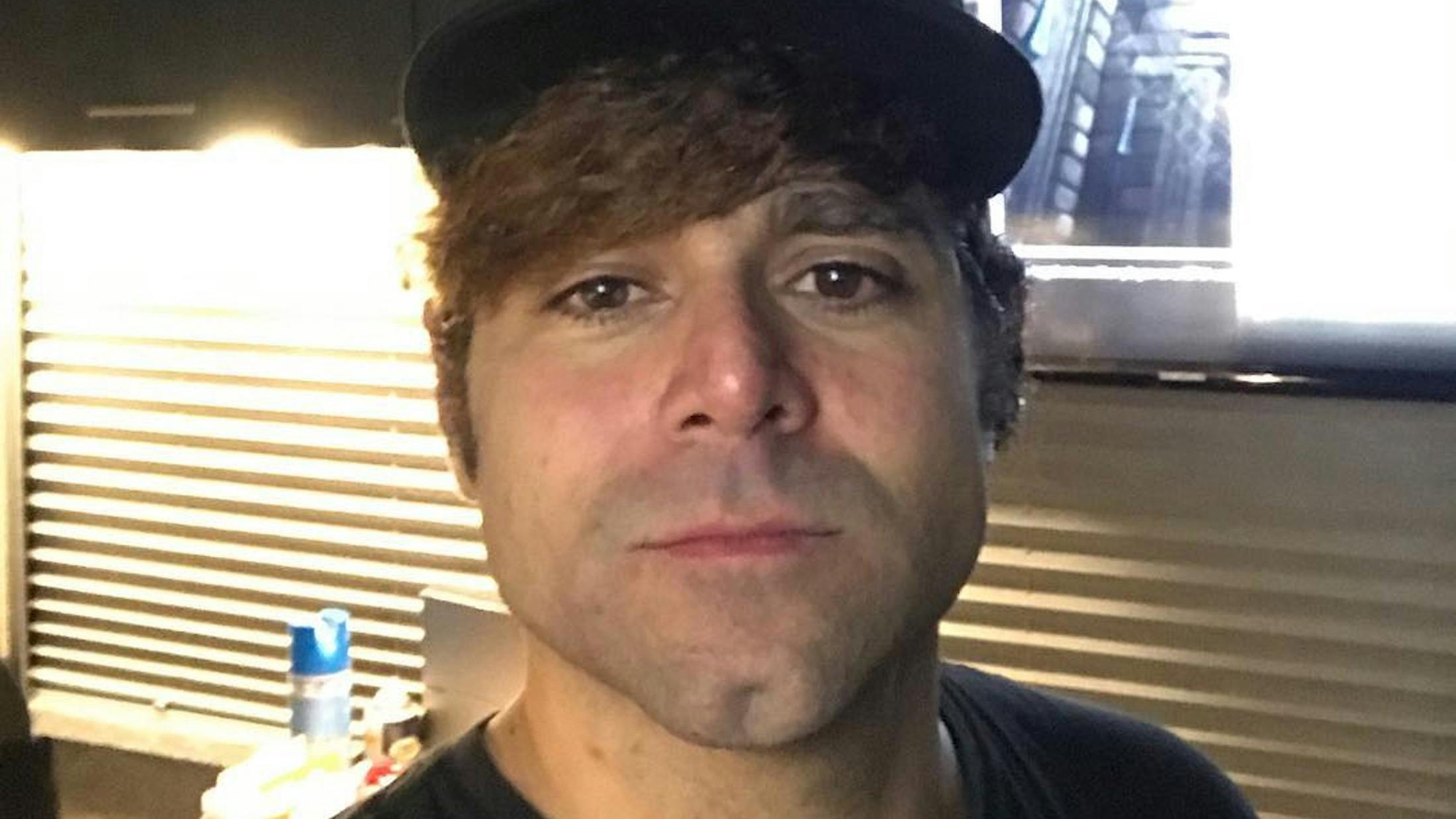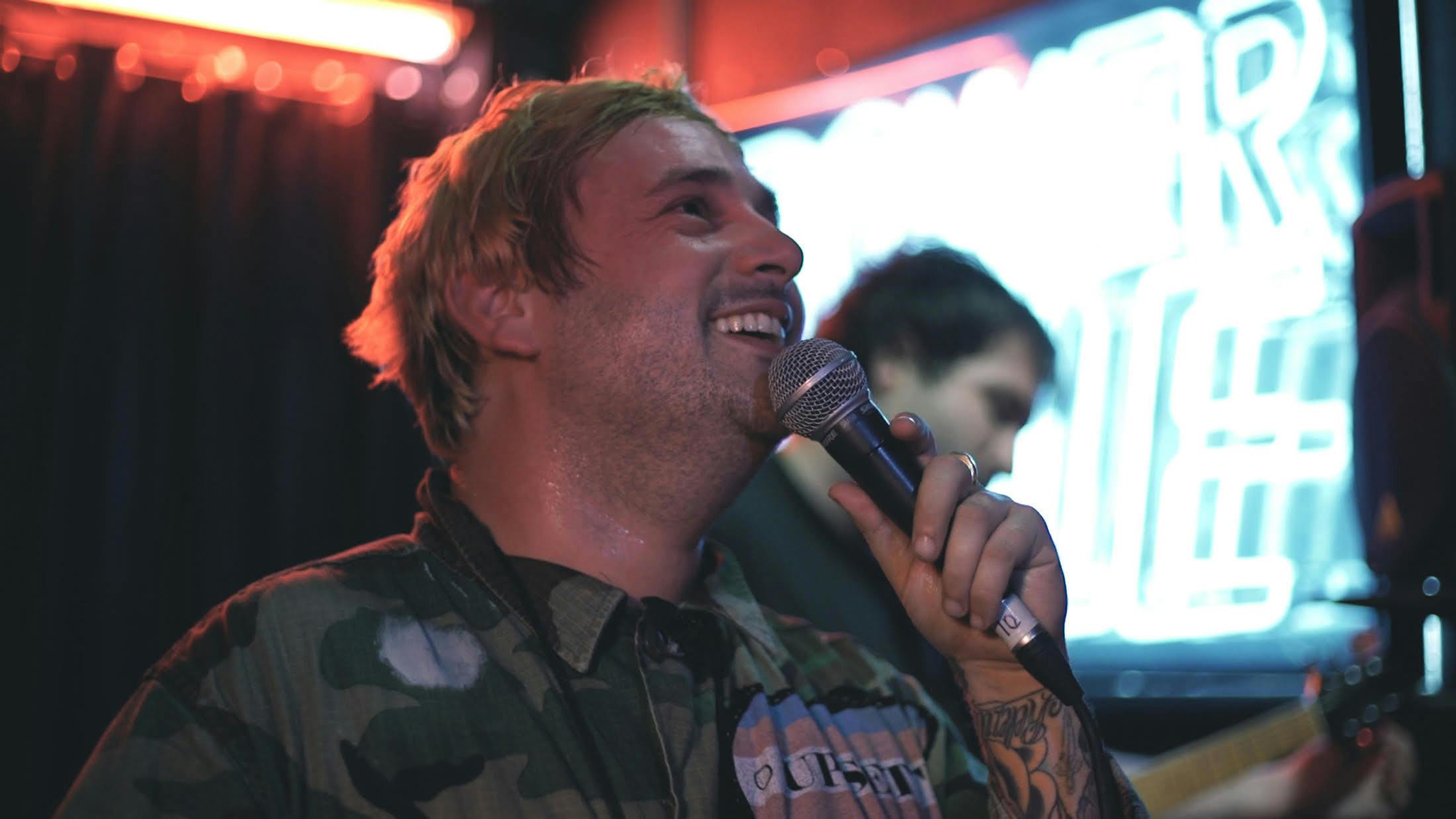There’s no question that, with their new album Bay Dream, Culture Abuse have made one of the best of 2018. Perfect for the summer (and for bringing back memories of the sun long after the season has gone), it’s a glorious, heady record that shimmers with a sense of naïve innocence, a far cry from the band’s raucous hardcore roots. Yet ask frontman David Kelling about this sonic shift and he’ll tell you that, really, it’s just a natural development: that it’s nothing particularly deliberate and that its songs were written in exactly the same way that the quintet – who recently moved from San Francisco to Los Angeles – wrote everything else before.
The other thing that’s remained a constant for David and the rest of Culture Abuse – guitarists John Jr (aka June Bug) and Nick Bruder, bassist Shane Pitt and drummer Ross Traver – is the sense of nihilistic chaos that pervades their lives. If that seems in direct contrast to the sunny strains of Bay Dream, it kind of is, but it also makes sense. Because, as David explains, although Culture Abuse is the reason behind a lot of his existential crises, it’s also simultaneously the solution, whether that’s dealing with his cerebral palsy and his mother’s health, or – as on 2016’s debut album Peach – the death of close friends and the band members having to sell drugs to make money. This is just a fraction of the involved and honest conversation…
Bay Dream isn’t as heavy as some earlier Culture Abuse stuff. In fact, it’s really quite beautiful in places. What took you in that more mellow direction?
I don’t know. It’s hard, because even with Peach, that in a sense stems back to when I first got into punk rock. All the local bands were hard and fast and just yelling. It was crazy. I grew up listening to the Sex Pistols, who are amazing, but they’re not super fast or hard, and there’s the Ramones and The Clash and Rancid and Operation Ivy and all these bands you could listen to, but then when I got involved in the punk scene and started going to shows, all the bands were either super fast punk rock or super hard hardcore. So when we actually started playing music, the only shit we could actually see that was tangible was super hard. I never sang in any band I was in – I just screamed my head off. With Culture Abuse, I wanted to do something different, but then it was so hard to stray away from that. Well, not stray away, but the songs that are on Bay Dream, I’ve written like that my entire life. I’ve just been way too scared to sing them in front of anyone because there’s no-one around me doing that. Even with Spray Paint The Dog, I wanted it to be more melodic, but I was insecure and thought that it had to be hard. And with Peach, it was kind of like, 'I’m going to sing' and I was trying to do that more, but I was masking it. So this record, I feel is very vulnerable.
